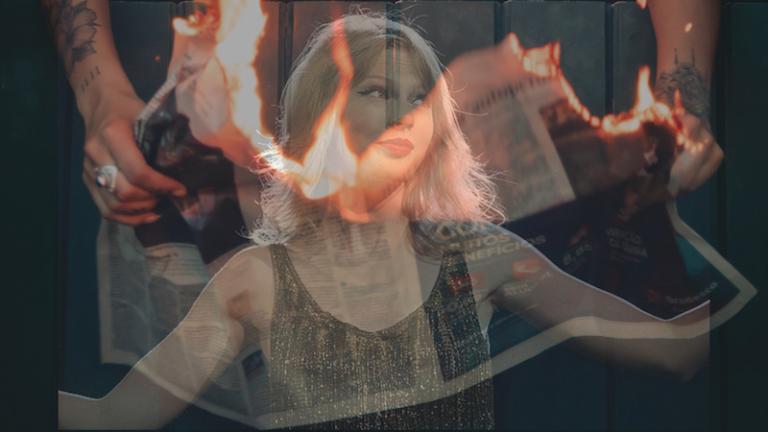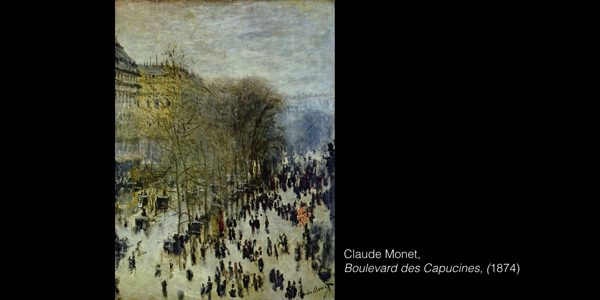I’m a mid-fifties white male weaned on rock and roll. My top five all-time favorite artists are firmly cliche: Wilco, U2, Radiohead, Tom Petty & the Heartbreakers, & the Boss. If you knew those were my bands, you could correctly reverse-engineer my ethnography within a few percentage points. All that to say I’m probably the last guy you’d expect to become fascinated with the music of Taylor Swift. But I have.
I’m not sure exactly how it happened. I was dismissive of the TS phenomenon for a long time. But, I live in Kansas City, and am a huge Chiefs fan, so the Kelce romance has been a big part of the cultural discourse in my city. It was actually her 2 sold-out shows at Arrowhead that grabbed my full attention earlier this year. Plus my wife has been steadily feeding me Taylor Swift song backstories for years. Also, I’m a songwriter by trade and passion. I made my living this way for the better part of a decade (cue Satellite Soul on Spotify), and although these days my writing is more prose I still love writing music. Good songwriting has always been irresistible to me. So I’ve been listening to her music, and talking with her fans, I even watched the live show movie while reading along with the lyrics.
I know the cynical rock-and-roll script to dismiss Taylor Swift’s legitimacy as an artist: it’s just brilliant marketing, she has the best songwriters money can buy, I like her music but her fans, and so on. But I have had some experiences with her music this year that have me taking a second look.
My favorite thing about rock-and-roll has always been its prophetic damn-the-man power-to-the-people center. Rock music was born to say the quiet part out loud and to be a pain in the establishment’s ass. But I have come to fully embrace Mark Fisher’s assertion that rock-and-roll is all but dead, colonized by late-stage capitalism and robbed of its Promethean core. When I listen to music, I’m longing for somebody to say something true, something honest and insightful, and to do so with the beauty of music that drills its way through my protective armor and lodges itself in my soul. I listen to music because I long for that magical combination of the true, the good, and the beautiful that unlocks the soul’s capacity for the divine. Say what you want about Taylor Swift, but she’s doing this very thing for millions of people every single day. Anybody who can pull that off is, forgive me, rock-and-roll to the core.
Plato said that music was dangerous to society because it bypasses the intellect and speaks directly to the heart. “Let me make their music,” he supposedly said, “and I don’t care who makes their laws.” This is the power of what James Joyce termed aesthetic arrest. It’s what you call it when a song that just rips us open, cuts us to the core — an encounter with the beautiful that stops us in our tracks, rips a hole in the sky, and ushers in an encounter with the divine. Aesthetic arrest, that’s TS’s stock in trade.
However, beauty isn’t enough. The three transcendentals have to work together. To say something true can be profoundly cruel if there’s no goodness in it. To do something good can be meaningless without some kind of truthful underpinning. Beauty devoid of truth and goodness can be, well, pornographic. Von Balthasar said that beauty is the queen of the transcendentals. All the goodness and truth in the world would be meaningless if it were not in some sense beautiful. Humans are drawn to beauty like nothing else because beauty connects us with the all-but-lost human capacity for encounters with the divine. We are spiritual beings with the capacity to commune with God. But the capacity to sense the nearness of God must be cultivated to be experienced, and our culture is really bad at fostering this connection right now.
Which brings me to the prophet Taylor Swift. Theologically speaking, a big part of the prophet’s job is to help human beings to have an uncomfortable conversation in a public space, to wake us up to the hidden dimensions of life, and our own capacity for God. In doing this, the prophets wrote poetry as much as anything else. They were artists, and the artist’s job is prophetic; it’s to captivate us with beauty for long enough that we’ll begin to wake up to the spiritual dimension of our being and to begin to engage in our own confession. By confession, I don’t mean listing our moral transgressions. True confession is just telling the truth about our lives. What TS does as well as any 1970s rocker is to be heroically honest about her own life in her songwriting. Yeah, it’s self-indulgent. All great art is self-indulgent. But more than anything TS’s songwriting is confessional, and her music inspires confession in others, and it does this by engineering encounters with the beautiful. Could it be that Taylor Swift is fostering people’s innate capacity for God? I think so.
So I don’t dismiss Taylor Swift anymore. I’m listening. As a pastor and an artist, I’m paying attention to the way that people respond to her work. I have deep respect for anyone in the wider culture who is trying to wake people up to their own lives, to confess, to open up their souls to an encounter with the divine through the true, the good, and the beautiful. I think TS is succeeding in this endeavor to a degree that is extremely rare.
Find me on X: @Tim_Suttle














